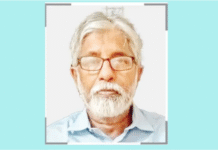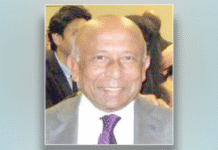
Security experts on Saturday stressed the need for a greater role of print, electronic and social media in ‘counter-messaging’ the messages and misinformation manufactured by the ‘extremist outfits’ in society.
They pinned down the factor that radicalisation of society towards any extremist ideology involves a process of conveying messages based on wrong interpretation of religion, and on wrong information by organised forces, and it needs to be tackled with the counter-messages of the same frequency by the media.
Addressing a roundtable, titled ‘Counter-Radicalisation in Bangladesh: The Role of the Media’, they also pointed out that there is always a chance of violation of human rights when the state is involved in encountering ‘terrorism’, and that the media must play a check-and-balance role by maintaining a sharp watch in this regard.
The roundtable was organised by Bangladesh Enterprise Institute (BEI) at a city hotel.
Speaking on the occasion, Brig Gen (retd) Shahedul Anam Khan, defence and strategic affairs editor of The Daily Star, complained that most of the time, most of the media in the country, particularly the electronic media, get carried away while covering acts of violence and ‘terrorism’ by militant outfits or religious extremist groups.
The media in the country are now in a competition with each other to air an incident of violence and disturbance by religious extremist groups almost in a real-time mode, and the process ultimately leads to the exaggerated impression about the strength of the groups.
“Radicals want publicity and want to exploit the impetus of the media for the real-time coverage,” he said.
Shahedur also noted that when the state is involved in countering terrorism, there is always a chance of violation of human rights. “The rule of law must be kept in mind while combating violence and the media must play the role of a watchdog in this matter to have checks and balances,” he said.
He said the state must prioritize the use of ‘soft power’ over the harder means to effectively diffuse the radicalisation process, and also focus on reducing the religious prejudices of the oppressed sections of society through ensuring quality education and equal opportunities.
Media outlets must discuss within themselves to reach a consensus to ensure that they do not promote creation of differences of opinion over sensitive issues of religion, he added.
Presided over by BEI president Farooq Sobhan, the roundtable was also addressed by Asian TV head of news Nadeem Kadir and BEI senior research director Humayun Kabir.
Source: UNB Connect









